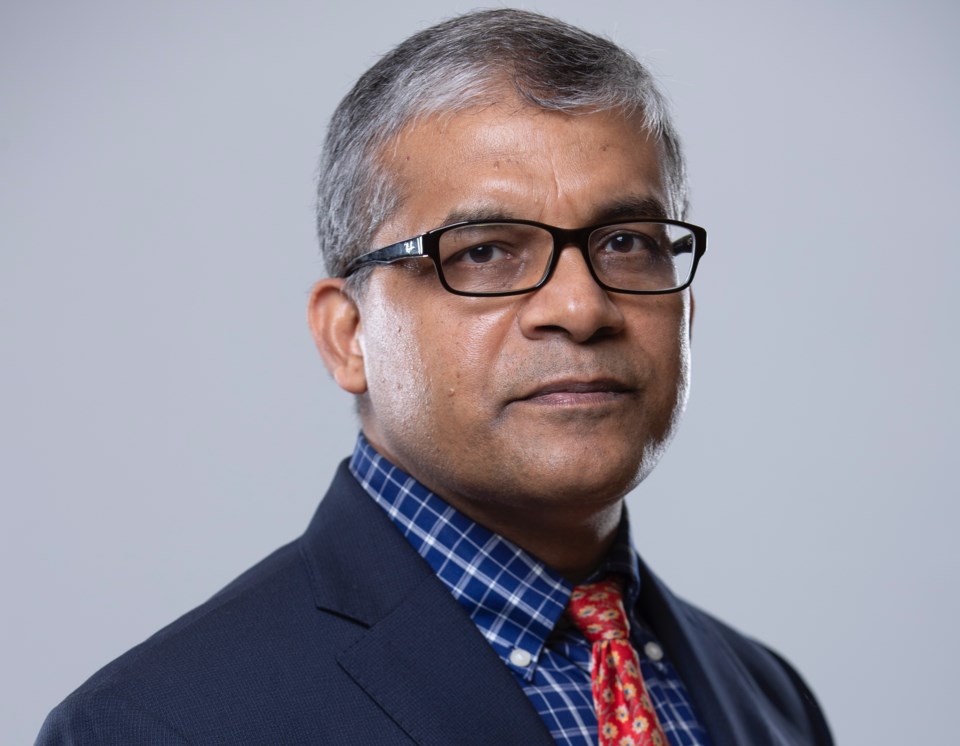Recent Advances in Power Converter Control Techniques for DFIG-WECS
The Montreal Chapter of the IEEE Control Systems (CS) cordially invite you to attend the following in-person talk, to be given by Dr. Mohammad Nasir Uddin, the Department of Electrical Engineering, Lakehead University (LU).
Date and Time
Location
Hosts
Registration
Speakers
Dr. Mohammad Nasir Uddin
Topic:
Recent Advances in Power Converter Control Techniques for DFIG-WECS

Over the last few decades, wind energy has emerged as one of the fastest-growing mainstream power technologies due to its low cost and environmentally friendly nature compared to conventional fossil fuel-based power generation. Considering available options of state-of-the-art generator technologies in wind energy conversion systems (WECS), doubly fed induction generator (DFIG) has become popular because of its economical operation, ability to regulate in sub-synchronous or super-synchronous speed and decoupled control of active and reactive power. Harnessing regulated power supply from unpredictable wind blow, extraction of maximum power from intermittent generation and supervision on nonlinear system dynamics of DFIG-WECS are some of the critically challenging issues for wind energy systems. Maximization of the power yielded from wind turbines is possible by optimizing the tip-speed ratio, turbine rotor speed or torque, and blade angle. Traditionally, the maximum power point tracking (MPPT) control algorithm is based on the Hill Climb Search (HCS) method due to its simple implementation and turbine parameter-independent scheme. Since the conventional HCS algorithm has few drawbacks, such as power fluctuation and speed-efficiency trade-off, a new adaptive step size-based HCS controller is developed in this work to mitigate its deficiencies by incorporating wind speed measurement in the controller. Again, conventional feedback linearization controllers are sensitive to system parameter variations and disturbances on grid-connected WECS, which demands advanced control techniques for stable and efficient performance considering the nonlinear system dynamics. An adaptive backstepping-based nonlinear control (ABNC) scheme with an iron-loss minimization algorithm for DFIG has also been developed in this work to obtain both improved dynamic performance and reduced power loss.
In order to verify the effectiveness of the proposed control schemes, simulation models are designed using Matlab/Simulink. The proposed MPPT control, nonlinear control for the grid-connected mode of DFIG-WECS, has been successfully implemented in real-time using DSP controller board DS1104 for a laboratory 350 W DFIG. In the laboratory environment, a 4-quadrant dynamometer is used to emulate the wind turbine to provide variable wind speed to the generator. The performance of the proposed ABNC is also compared with the benchmark tuned proportional-integral (PI) controller under different operating conditions, such as variable wind speed, grid voltage disturbance and parameter uncertainties, and it exhibits excellent grip over the rotor side and grid side converter control.
Biography:
Dr. Mohammad Nasir Uddin
received the B.Sc. and M. Sc. degrees both in electrical & electronic engineering from Bangladesh University of Engineering and Technology (BUET), Dhaka, Bangladesh, and the Ph.D. degree in electrical engineering from Memorial University of Newfoundland, Canada in 1993, 1996, and 2000, respectively.
He has been serving as a Professor in the Department of Electrical Engineering, Lakehead University (LU), Thunder Bay, ON, Canada since August 2001. He also served as a visiting Prof. at Univ. of Malaya (2013, 2012, 2011), University of Tenaga Nasional (UNITEN) (2018-2019), Malaysia, Tokyo University of Science (2010), Japan and North South University (2006), Dhaka, Bangladesh. Previously, he was an Assistant Professor in the Department of Electrical and Computer Engineering, University of South Alabama, USA from January 2001 to May 2001, an Assistant Professor from 1996 to 1997 and a lecturer from 1994 to 1996 at BUET. He possesses more than 28 years of teaching experience and has authored/coauthored over 270 papers in international journals (67 in IEEE Transactions and 22 in other refereed journals) and conferences.
Dr. Uddin is a registered professional engineer in the province of Ontario, Canada. Currently, he is serving as an Associate Editor for IEEE Transactions on industry Applications. During 2016-2017 he served as an Executive Board Member of IEEE Industry Applications Society (IAS) and Chair of IEEE-IAS-Manufacturing Systems Development and Applications Department. Earlier, he also served as one of the Technical Program Committee Chairs for IEEE Energy Conversion Congress and Expo (ECCE) 2015 at Montreal, Canada. He was the Technical Program Committee Chair for the IEEE-IAS [Industrial Automation and Control Committee (IACC)] Annual Meetings in 2011 (Orlando) and 2012 (Las Vegas). He served as Transactions Papers Review Chair (four years, 2009–2010 and 2013–2014) for IEEE Transactions on Industry Applications (IACC). Earlier he served IEEE IAS IACC for 9 years in different capacities (secretary-elected, vice-chair, chair and past-chair). Due to his outstanding contributions IEEE-IAS IACC recognized him with the IEEE IAS Service Award 2015. He was bestowed upon with LU Distinguished Instructor Award in 2023 and LU Distinguished Researcher Award in 2010. He was the recipient of four Prize Paper Awards from IEEE IAS IACC and both 2004 Contributions to Research and Contributions to Teaching Awards from LU. His research interests include renewable energy conversion, motor drives, power system protection and intelligent controller applications.


 Add Event to Calendar
Add Event to Calendar